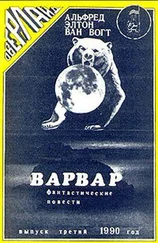The Asiatic knows how to accept, to be receptive, to be a disciple. I was present in Santiniketan at a lecture on a Vedic text. Good, but nothing exceptional. The students were there, ready to accept everything. If I had been the lecturer, I would rather have liked to insult them.
In their literature, in the dramatic works of Bhavabhuti, Sri Harsha, Kalidasa, in the Tantchatantra and in many of the Chinese works there are three lines of quotation to ten of the author.
It is a question of showing what a good pupil one is.
If someone in Bengal meets you, knowing you are a writer: ‘So you have done the Humanities. What degree have you got?’ He asks you that at once. Naturally you must say ‘Doctor’ and if you are a pork-butcher, say doctor of pork-butchery. They asked me besides: ‘Who is your master?’ When I replied: ‘Well, nobody; why?’ they did not believe me. They imagined it was some kind of trickery on my part.

What I can never get used to is seeing them grovel in front of me. No, I am not a rajah , nor a nabob nor a zemindar , nor a great nor a small lord, I am like everybody else, you hear me. May I not be reborn a groveling Hindu! Be simple, I pray you, there is nothing extraordinary about me, neither you nor I; it is no use throwing yourself on the ground. No, I do not need any servants. (A ‘cook’ all the same succeeded in getting himself hired. What style! He might have been serving a king.)
Servants have always been terribly painful for me. When I see one I am overwhelmed with despair. It seems to me that I am the servant — the more he humbles himself, the more I am humbled. In fact, everyone has noticed that people who have a houseful of servants, whether they be dukes or maharajahs, end by resembling servants. They never have the look of free men.
Ah! They can be proud, the Brahmins, of their fine work. During three thousand years, they have succeeded in degrading two hundred fifty million men.
This result, unique in the world’s history, is enough, it seems to me, to disgust one with the Laws of Manu , with their two weights and two measures, and with Hindu religion , double-faced, one for the initiated and the other for fools.
Humility is certainly a quality of the highest order; but not degradation. Not very long ago an Untouchable who was about to cross a road had to ring a bell and cry loudly: ‘Beware, Brahmins anywhere about here, a wretched untouchable is going to pass. Beware of the outcast who is going to pass.’ Then they stood back, or had him devoured by the dogs. This poor devil who could only despise himself, but who, though crushed by his situation, had still not reached the point where he was unable to find the ‘real God.’
But so abject a situation completely soiled the Brahmin. To bear such groveling on the part of a human being, to oblige him to do it, one must be very base oneself, firmly set in baseness and ignorance.
Now the situation is changing. Jealous as hunchbacks, but always as ignorant as carp, a hundred times less representative of the real India than simple weavers or members of middle or inferior castes, they are beginning to find that these are standing up to them. Ranassanry naiker d’Erode , founded at Madras, is the self-respect association . Suffice it to say, the Brahmins are not admitted to it.
In the Presidency of Madras they hardly dare to travel on the railway. As soon as they are seen arriving with their famous cord around their waists, they are questioned, their untold stupidity is put to the test. They are soon left ‘à quia.’
Really, I shall be glad to see India again a few years from now. I shall meet some humble people there.
At a university where they were supposed to be very anxious that the West and the East be brought closer together, an eminent Hindu Sanscrit scholar was begged by one of the greatest connoisseurs of the music of Bengal, of the north of India and of Nepal, to translate for the European public the following words of a song: ‘Does one cast pearls before swine?’ The answer was as follows: ‘It is thanks to this conception, Professor, that pearl experts, who keep pearls too long, turn into swine.’
It is thanks to this conception that they have maintained ignorance and misunderstanding of their own religion among two hundred fifty millions of their people.
He who after that speaks of the humanity of the Hindu speaks another language than mine.

Do not think, either, that the Hindu is crushed under the load of regulations, nor is his religion tyrannical in that way as it is so often said to be.
The Hindu is naturally delighted with regulations. Those of religion are insufficient, he only asks for more to follow.
Even in love, he is delighted to follow regulations (Kamasutra).
Even as a thief, he is delighted to follow regulations. In an old play (by Kalidasa, I believe) where the thief tries to enter a neighboring property, from which he is separated by a wall and a door, there he is, complacently going over the code of robbery, its different rules, stopping finally at rule number six, namely, ‘rules to follow in the case of burglary added to housebreaking.’
A Hindu friend, if I rendered him a service, usually gave me next day by way of thanks a wretched bunch of flowers (in India they do not know how to arrange a bunch of flowers but they offer them all the time, to open the conversation) and a few rules, such as to raise the right foot in order to breathe to the right, never to urinate without breathing from the left nostril, to insert the little finger into the ear after sunset, etc.
I am so sorry that these rules are not worth the trouble of following. I would have very much liked to have been for once in good hands and under foreign and safe guidance.

In France, a poet who has become almost a national figure is often invited to speak on every subject. And upon my word, he accepts. He will speak about everything. Everything thinkable that can be extracted from a subject, in spite of his ignorance of it, he extracts. And it cannot be denied that he makes one think, though generally about something quite different.
The Greeks were the same (not only the Sophists).
But the Hindu is superior to them all. With him, emptiness does not exist. Ignorant of a subject as a stone, he will embellish it at once.
His natural history, which contains very few good observations, does not fail to enumerate eighteen ways of stealing, seventeen of falling down, eleven of getting up again, fourteen of running, and fifty-three of crawling.
Eighteen verbal manners of stealing naturally, without a sketch, without a detail, but eighteen and not nineteen. Eighteen and the question of stealing has been dealt with to one’s entire satisfaction.

Adoration, like love, presents a fatal downward slope. He who lets himself go goes far…
You adore? Well! Give us some proofs!
Here is where the sacrifice comes in, the ‘palpable’ part of adoration.
God listens absentmindedly to prayer. But let blood be spilled for him, and he draws near. He is obliged to come. One can catch him with a victim.
The Hindu is particularly attracted by sacrifice.
If he offers up a goat, it is because he is not allowed to offer up more.
There was once a caste that spread all over India, its one aim being to supply God with human sacrifices. They caught you on the road, carried you before an altar, and squeezed your neck. God, who apparently accepts everything, said nothing. And, content, they went off again to seek another man. Thus it was that several travelers stopped sending news of themselves to their families and relatives.
Читать дальше













